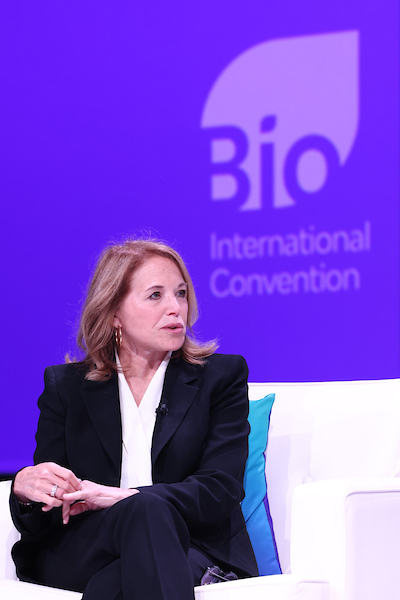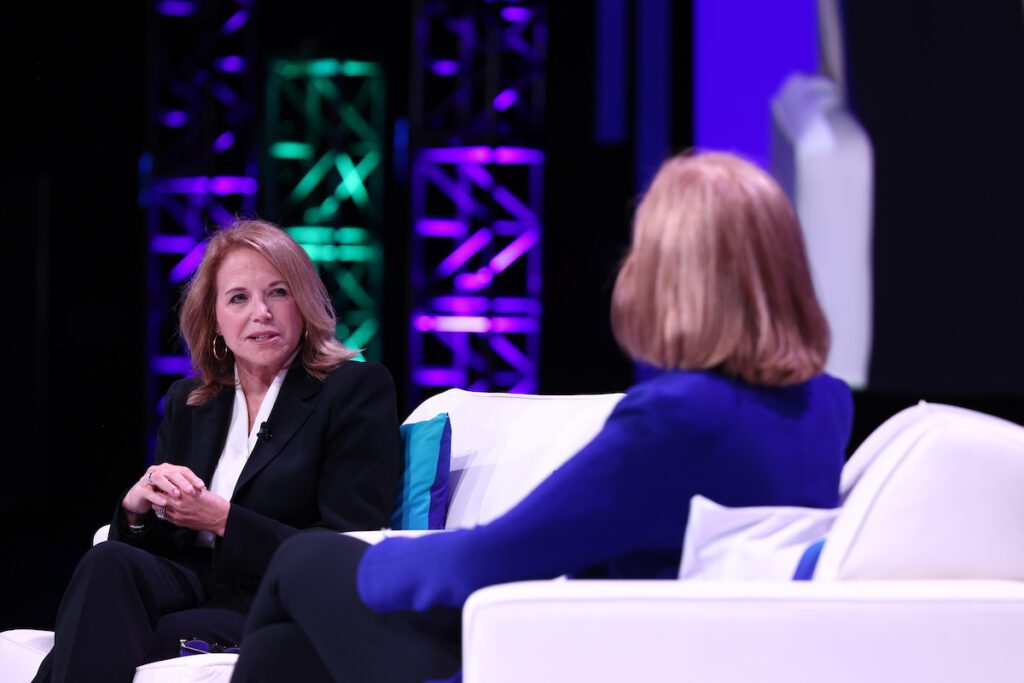On June 6, the 2023 Biotechnology Innovation Organization (BIO) International Convention opened with remarks by Katie Couric who, in addition to being an award-winning journalist, has also been a patient, caregiver, and advocate.
In a wide-ranging conversation with BIO CEO Rachel King, she covered topics including her husband’s cancer diagnosis and ultimate death, her own breast cancer diagnosis last year, and the role of the media in fighting misinformation.
If you missed it, we caught a few highlights.
On her breast cancer diagnosis
 “Last summer I went to get my mammogram, and like many women because of the pandemic and it sort of screwed up our sense of time and because many facilities weren’t open—yes, I was six months late at getting my mammogram,” she said.
“Last summer I went to get my mammogram, and like many women because of the pandemic and it sort of screwed up our sense of time and because many facilities weren’t open—yes, I was six months late at getting my mammogram,” she said.
“I had hormone receptor-positive stage 1A breast cancer. Which was a shock. You know, I said especially because I have no family history of breast cancer, but people always get that wrong because 85% of breast cancers have no family history. And so what I wanted to do is to really help women understand that if they have dense breasts – and 45% of women 40 and over have dense breasts – that they need to get additional screening because mammograms are not sufficient…It’s like looking for a snowball against a field of snow.”
“Someone told Rachel not to ask me about dense breasts. I’m like, what moron said that? That’s ridiculous. You know, we should be able to talk about our bodies. You know, everyone has a colon if they’re lucky. You know, people have dense breasts,” she continued.
“I have really been happy to destigmatize and demystify some of these procedures and help people understand in plain English what these diseases can do, how you can prevent them, how early detection saves lives. I’m a living example of that.”
On the importance of patient advocacy
“I think the patient’s voice is everything. I think they can’t do it without the great scientists and researchers and medical experts, but they should be working in tandem,” she said. Patients “can help get the funding, they can organize, they can form a community and they can obviously their experiences are absolutely crucial. We have to get more patients involved in clinical trials because that is traditionally a really big problem, right? We need to get more patients and more diverse patients by the way, because that’s another big problem.”
On the role of biotech
“Now all you brilliant people in biotech, thank you for your brain power. I mean you blow my mind. You’re amazing. All the businesspeople, thank you for supporting their work. I think we are seeing just such monumental change in science and medicine and I think AI,” she said. “It’s an incredibly exciting time.”




